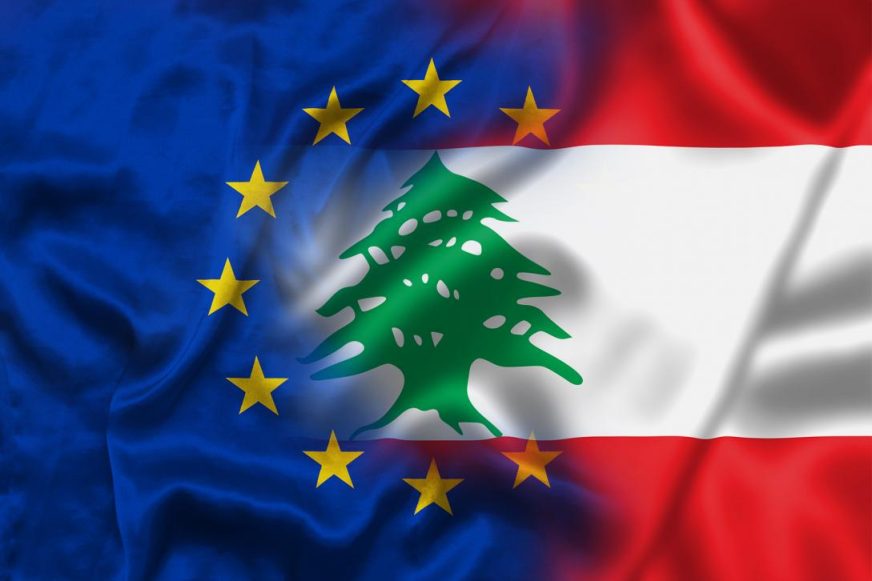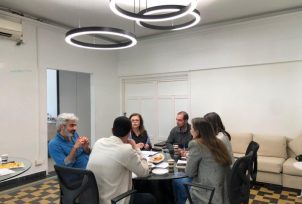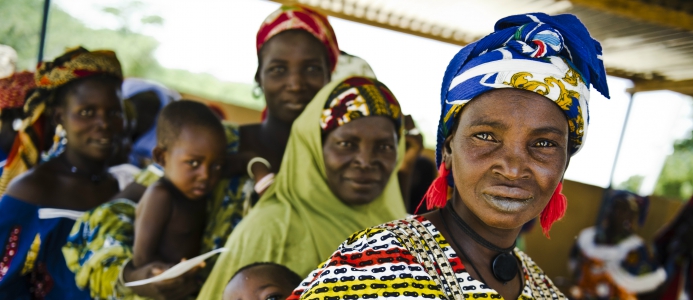Lebanon: Remarks by High Representative/Vice-President Josep Borrell to media after talks in Beirut

“I am in Lebanon today for my third visit in one year. I’ve been in Lebanon three times this year, and this is my last visit as High Representative of the European Union [for Foreign Policy].
This conflict has already taken an international dimension, and the international community cannot stay idle in front of what is happening here. Back in September, I came and I was still hoping that we could prevent a full-fledged war, a full-fledged war of Israel attacking Lebanon.
Two months later, Lebanon is on the brink of collapse – with the war raging in the south, where tens of villages have been fully destroyed, and with the airstrikes against Beirut and in Baalbek, and rockets flying over Tel Aviv. The toll, the human toll, is extremely heavy. Israeli airstrikes have killed more than 3.500 people in Lebanon, more than three times the victims of the conflict in 2006, three times more.
Fifteen thousand people have been injured, and among the casualties, an incredible amount of medical workers and hospitals being hit. Two months ago, as today, we see only one possible way ahead, an immediate ceasefire and the full implementation of the United Nations Security Council Resolution 1701 – an immediate and simultaneous ceasefire by all parties. The deployment of Lebanese [Armed] Forces along the Litany River, the withdrawal of Hezbollah fighters, the withdrawal of Israeli troops and the establishment of Lebanese full sovereignty by air, land, and sea.
Allow me also to commend the work done by the international [peacekeeping] mission UNIFIL. UNIFIL is playing a key role in an increasingly challenging environment. There are over 10.000 men and women deployed [with UNIFIL] in the south. Thirty of them have been injured. Four Italians only a few days ago. The attacks against UNIFIL are completely unacceptable. UNIFIL has the strong support of the European Union, and I want also to reiterate the support to UNRWA, which is playing an irreplaceable role in Gaza, but also here in Lebanon. The services that UNRWA provides to half a million of Palestinian refugees cannot be supplied by anyone else. And we condemn the law passed by the Israeli Knesset, and we continue urging the Israeli government not to implement this decision.
As the European Union, we are supporting the Lebanese people, the Lebanese army, and the Lebanese institutions. We are ready to devote 200 million euros to the Lebanese Armed Forces. And I have asked Prime Minister [Najib] Mikati what and how we can support your army, not only financially, but also technically, and I will do the same thing to the Lebanese Armed Forces commander [Joseph] Aoun.
But the success of the effort for a ceasefire and a long-term solution are in the hands of the parties. To expedite the solution to the war, Lebanese leaders need to take up their political responsibility by starting to elect a President and put an end to a two years long vacuum of power in Lebanon. I discussed today with this Speaker [of the Parliament Nabih] Berri, and I want to encourage our political actors to take their responsibility towards the Lebanese people.
The Lebanese people have been showing an incredible generosity and internal solidarity, not only with the refugees of the Syrian war, not only in front of the economic crisis, not only in the explosion of the port, but now with so many Lebanese people having to escape the war from the south. And we also offer the European solidarity. But they live every day with sadness, seeing increasing suffering in Gaza and Lebanon.”




























 Syria
Syria 




